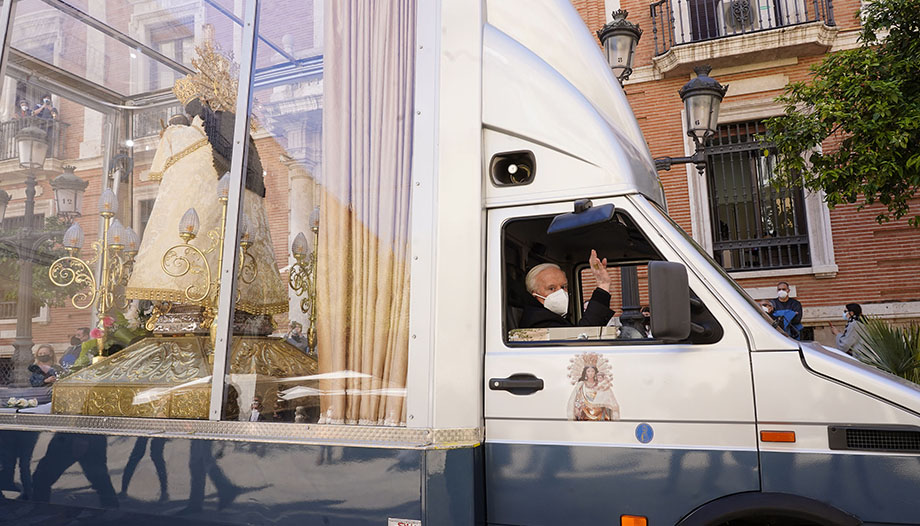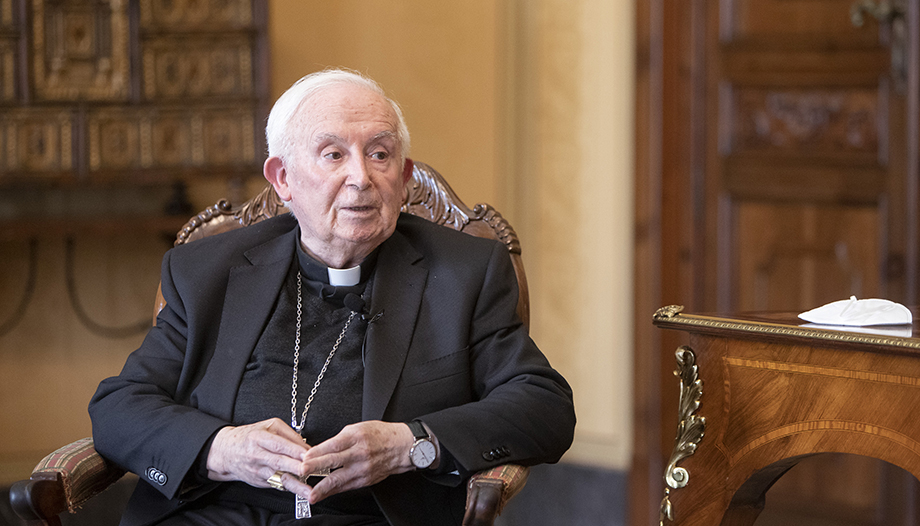Omnes The printed version of this April's issue is available in Spanish, a lengthy interview with the Cardinal Archbishop of Valencia who, in the last few months has made headlines with initiatives such as the departure of Our Lady of the Forsaken in a car through the streets of Valencia, or the creation of the Foundation Pauperibus through which the bishopric will dispose of various assets to put the money at the service of the needy.
"Our Lady came out because she wanted to come out."
In recent weeks, we have seen him touring hospitals and other places in Valencia with the pilgrim image of the Virgin of the Forsaken in the so-called "Virgen de los Desamparados" (Our Lady of the Forsaken). Mare-Mobile Where did the idea for this peculiar Marian outing come from?
Our Lady went out because she wanted to go out. She wanted to visit the people, to be with the people and we have listened to the Virgin. What we have done is simply what Our Mother wanted and what the Valencian people also wanted. At the beginning of the pandemic they already asked me, but, in these last weeks, the call that the Virgin was making to us was so insistent, this desire of hers to see her people, that I said to myself "We have to consent to this request, because it is not ours, it is Our Mother's". That is the most beautiful thing about this outing. It has not been a simple outing. I was able to accompany her one day and it was, for me, a day of grace, light and hope.
There have been precious anecdotes. Anecdotes that express how the Valencian people are and how they live what is said in our hymn to the Virgin "la fe per Vos no mor": faith does not die thanks to Her.

One of the initiatives that you have announced is the creation of the foundation PauperibusWhat is the reason for a new initiative of this kind?
In Valencia we have the examples of saintly bishops such as Saint Thomas of Villanova or Blessed Cardinal Ciriaco Maria Sancha, who died after visiting the poorest of the poor in a freeze in Toledo... How could I, being the successor of these bishops, not do something similar? Pauperibus is just that: a foundation for the poorest. That is why it has been warmly welcomed by priests and faithful alike. It is a matter of making some of the bishopric's goods, specifically several paintings, pay for themselves. Where is the money of the poor better? hung up? or put at the service of the most needy, making us negotiate what we have received from the Lord?
We have received everything, nothing is ours, everything is God's, and God loves the least. The Church is poor and must appear as what she is: poor. Her wealth is God and nothing but God.
"In Rome I saw the Church as it is: mystery of communion".
You have developed your pastoral work in the heart of the Church, among others, as Prefect of the Congregation for Divine Worship and the Discipline of the Sacraments. What do you remember about the work of those years?
I remember everything. My deep communion with Pope Benedict XVI, also with Pope Francis. There I saw the Church as it is: mystery of communion, mystery of unity.
For me, my time in Rome has been a gift, to get to know the churches of the third world, the poor churches, the churches in need.
In your opinion, what are the main challenges facing the Church?
The main challenge of the Church today is that people believe. That people come to know and follow Jesus Christ. It is the challenge of the first times, to evangelize, to make disciples, followers of Jesus who really follow that new life that we find with Christ.











